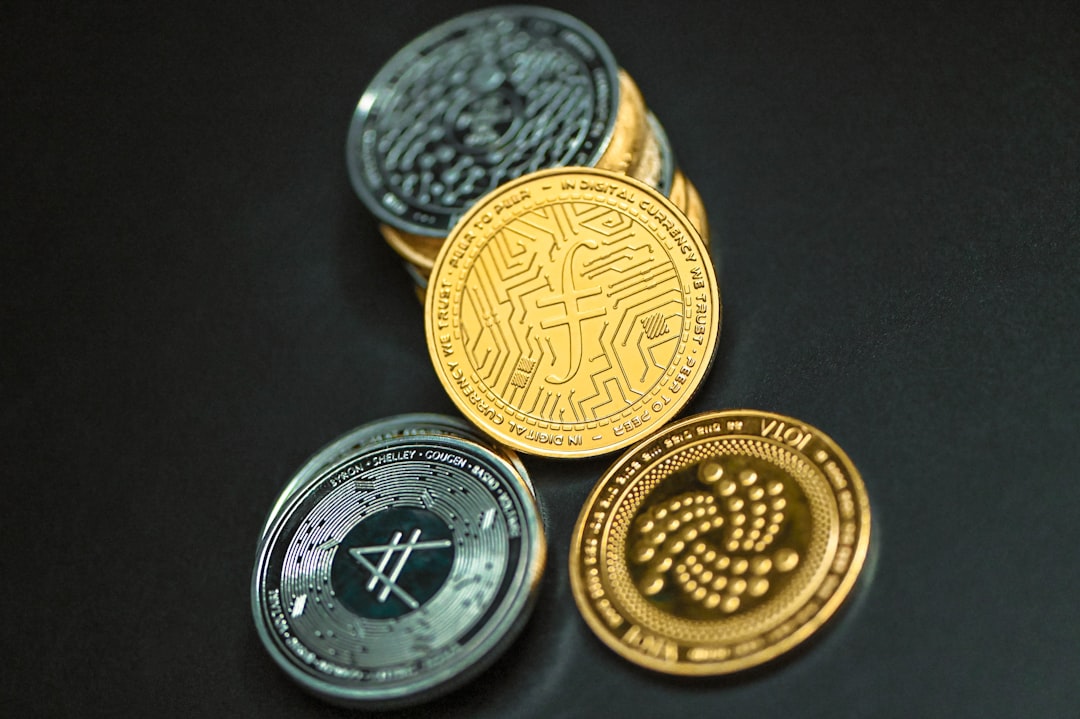
How does Hong Kong use blockchain technology to capture the new international financial arena? Demystifying the policy blueprint and future layout
Hong Kong's Financial Position and Blockchain Transformation Opportunities
The financial services industry has always been the lifeblood of Hong Kong's economy and the cornerstone for consolidating its position as an "international financial center". According to the 14th Five-Year Plan, Hong Kong is explicitly supported to build an "international innovation and technology center", and this strategic positioning has injected key momentum into Hong Kong's financial transformation. As the engine of the digital financial revolution, blockchain technology is breaking out of the cryptocurrency framework, and its application has penetrated into supply chain management, digital identity verification, cross-border payment and other diverse scenarios, becoming a key weapon for Hong Kong to break through the traditional financial boundaries.
Global fintech blockchain market size forecasts indicate that it will exceed US$43 billion by 2030 (compound annual growth rate of over 53%). If Hong Kong is to stand firm in this wave, it must transform the "transparency" and "security" of blockchain technology into the core competitiveness of financial innovation.
Hong Kong's Positioning in the Global Trend of Blockchain Adoption
The value of blockchain goes far beyond virtual asset trading. From the enterprise (B2B) side, technologies such as smart contracts, data sharing platforms, and digital certificate verification can significantly reduce transaction costs and operational risks in the traditional financial system. Hong Kong, with its mature financial infrastructure and internationalized network, is targeting two strategic directions:
1. Establishment of the Asian Carbon Exchange
The pain point of the carbon trading market is the lack of transparency and the inefficiency of cross-border settlement. Blockchain technology enables carbon footprint tracking, tamper-proof transaction records, and automated clearing through smart contracts. If Hong Kong integrates the resources of the Greater Bay Area and establishes a blockchain-based carbon trading platform, it will be able to attract Asian enterprises and international capital.
2. Promoting Real-World Asset Monetization (RWA)
The Hong Kong Financial Services Development Council (FSDB) has explicitly recommended "orderly issuance of stable coins" and asset tokenization, which can split high-value assets such as real estate and artwork into negotiable digital interests, lowering investment thresholds and enhancing liquidity. For example, the issuance of stable coins linked to the Hong Kong dollar through blockchain will strengthen Hong Kong's role as a hub for cross-border trade settlement.
Strategic Layout of Government Policies and Regulatory Framework
The HKSAR Government understands the importance of "regulation first", and in the 2023 Policy Address, it was revealed that "100 Digital Government Initiatives" will be launched from 2024 onwards, including the issuance of e-licenses and certificates using blockchain technology, which will not only enhance administrative efficiency, but also set an exemplary benchmark for the application of the technology by non-government enterprises.
At the regulatory level, Hong Kong adopts a dual-track strategy of "precise legislation" and "ecological cultivation":
- Establishment of a Task Force: Integrate blockchain development and compliance regulation to avoid policy contradictions caused by a multi-headed horse race.
- Strict regulation of virtual asset tradingThe following is a summary of the market: Compliant platforms are only allowed to offer "non-security-based tokens" to retail investors and are prohibited from dealing in high-risk derivatives to ensure the healthy development of the market.
- Public-Private Collaboration to Drive Technology to the GroundWeb3Hub: Through the Web3Hub Eco-Fund, it attracts international companies to set up their operations and at the same time subsidizes local fintech research and development, forming a virtuous cycle of technology and capital.
Challenges and Risks: How to steadily push the technology to the ground?
Despite the bright prospects, Hong Kong still faces three major challenges:
- Technical cognitive gapMost enterprises' understanding of blockchain is still at the cryptocurrency level, and there is a lack of practical examples of B2B applications.
- Cross-border regulatory harmonizationFor example, the issuance of stable coins involves foreign exchange control and anti-money laundering regulations, which require the establishment of a mechanism for collaboration with the Mainland and international organizations.
- Information Security and Privacy Risks: While decentralization enhances transparency, it may also increase vulnerability to data leakage and hacking.
In this regard, the FSDC has proposed a "Capacity Building" solution, which includes organizing blockchain training courses, integrating global experts and think tanks, and hosting international summits to enhance Hong Kong's technological voice. Only by strengthening public awareness and building up a pool of professionals can the potential of the technology be transformed into real output value.
Future Prospects: Diversification from Carbon Trading to Stable Currency
Hong Kong's blockchain strategy is not a single-point breakthrough, but rather the creation of an "ecosystem of competitiveness". From the digitization of government services, to the establishment of a carbon trading platform, to the monetization of real assets, every aspect of the strategy is closely linked to the goals of "enhancing financial efficiency" and "expanding international connectivity".
It is worth noting that Hong Kong has not blindly copied the models of other financial centers. Instead, it has combined the unique advantages of "one country, two systems": it is able to connect to the huge mainland market while attracting global capital with international standards. This "super-connector" role is precisely where Hong Kong's irreplaceable value lies in the blockchain era.
While other jurisdictions are still debating regulatory relaxation, Hong Kong has already demonstrated with its policy blueprint that embracing innovation and controlling risk is not a zero-sum game. This blockchain revolution may be a historic opportunity for Hong Kong to rewrite the rules of international finance.
Disclaimer: The contents of this article are for informational purposes only and should not be construed as any form of promotion, investment advice, or invitation, solicitation or recommendation of any investment product.
The contents of this article have been reprinted.offensiveIf there is anything wrong, please contact us and we will remove it immediately, thank you.
Readers should make their own assessment and seek professional advice.





